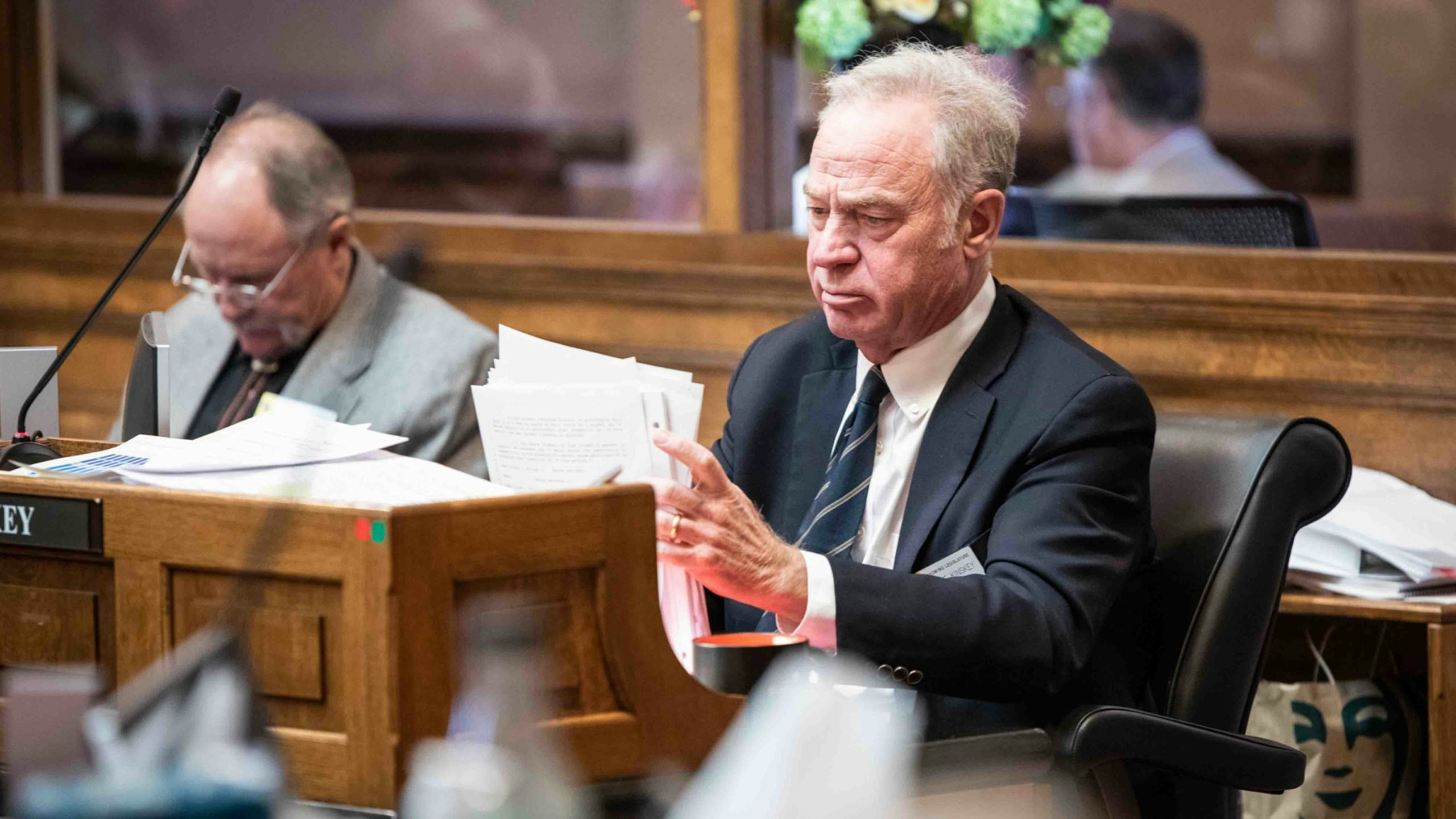By Clair McFarland, Cowboy State Daily
Photo Credit: Matthew Idler
Despite lobbyist and lawmaker resistance, a bill that would establish a public hotline for reporting government fraud, waste, or abuse of resources has been approved in its first full review by Wyoming’s Senate.
Senate File 50, which would also protect whistleblowers exposing government misdeeds from employment ramifications, was approved for floor debate by the Senate Corporations, Elections and Political Subdivisions Committee on Thursday and then was approved to advance in a vote of the full Senate.
“Fraud lines are extremely effective,” aid bill sponsor Sen. Tom James, R-Green River, during a Tuesday meeting of the Senate Corporations, Elections, and Political Subdivisions Committee. “You’re about three times more likely to find… fraud with a fraud hotline than without.”
James cited cases of government misspending that he believed could have been prevented if a tip line were in place, including a case in which foster parents allegedly kept children in mental health facilities longer than necessary while still receiving care checks for the children.
He told Cowboy State Daily in a text that he would release more details on the case.
James stressed any tips received on the line would be investigated.
“This does not sidestep any criminal processes,” he said. “This allows everyone their rights (to due process).”
After being convicted of a misuse of state resource, a government employee lose his or her protection under the Wyoming Governmental Claims Act.
“If you’re committing a crime on the people’s clock, with the people’s money, then you shouldn’t have that protection,” he said.
Medicaid Fraud
Sen. Charlie Scott, R-Casper, wondered if this same hotline could be used to report misapplied Medicaid funds paid for health care for low-income individuals.
Wyoming splits Medicaid payments with the federal government, 50-50.
“The place where I suspect the state seeing the greatest acts of fraud is in the Medicaid program,” said Scott. “At about the time the Affordable Care Act passed, the federal government had been policing Medicaid eligibility very vigorously, and they entirely ceased doing that.”
Scott later said he believes the state has followed the federal government’s example and stopped vetting Medicaid patients fully.
Wyoming has not opted into Medicaid expansion under the Affordable Care Act, but still receives funding for its existing funding program.
“I’ve started getting a lot of complaints about people… being on Medicaid programs, showing up in various medical facilities that were clearly not (low-income patients),” Scott said. “Does this bill deal with this situation?”
James said he believed it would, because the Wyoming Department of Audit could “filter out” calls based on their credibility and pursue problematic claims.
But Sen. Tara Nethercott, R-Cheyenne, disagreed with James.
“I think the answer to that, Senator Scott, is no,” she said, pointing to the Medicaid Fraud Control Act adopted by the Legislature in 2019.
Nethercott said James’ bill was written instead to address fraud among “state employees,” not “citizens in the Medicaid program.”
Scott, however, argued the hotline could help with Medicaid fraud.
In its own mandatory self-analysis report on cms.gov, the Medicaid program alone reported late last year that it had over-funded or otherwise misspent about $144 billion in public funds in 2019 and 2020 nationwide – with $57.36 billion in 2019 and $86.49 billion in 2020.
Resistance, Approval
Nethercott also argued the bill “has a couple of fatal flaws,” in her view, because it would compel the Wyoming Attorney General to prosecute the very entities he or she has been appointed to protect.
She also said references to the Governmental Claims Act “are inappropriate” in the bill because “there are no exceptions” to the act for waste, fraud and abuse.
“The intention here is laudable, but there are many fundamental flaws in the bill that make it unworkable due to the time” shortages of the 20-day budget session, she said.
Sen. Ogden Driskill, R-Devils Tower, also criticized the bill, saying it was broad enough to incriminate workers for minor, even well-meaning acts of government waste, such as a state snowplow driver plowing driveways of “little old ladies.”
Wyoming Department of Audit director Justin Chavez said his staff wasn’t big enough to take on the bill’s demands and he’d need to hire multiple people and bill the Legislature for several thousand dollars.
Likewise, David Frazier, the director of the Wyoming Association of Municipalities, said he admired the goal but didn’t’ believe SF 50 was “the right vehicle” to achieve it.
Sen. Cale Case disagreed.
“I support this bill,” he said. “I don’t think there’s a whole lot of fraud, waste or abuse… But I think the public feels cut out in responding to it.” Case, Scott, and Sen. Brian Boner, R-Douglas, voted Thursday morning to send the bill to the Senate floor for review.





